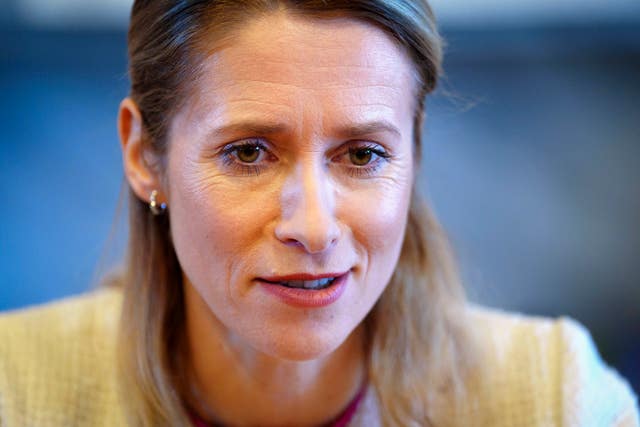PM Kaja Kallas’ Reform Party set to win in Estonia vote
Nine political parties in all fielded candidates for Estonia’s 101-seat parliament, or Riigikogu.

Voters in Estonia have cast their ballots in a parliamentary election where initial results suggested the centre-right Reform Party of Prime Minister Kaja Kallas is on its way to a landslide victory.
Ms Kallas faced a challenge from the far-right populist EKRE party, which seeks to limit the Baltic nation’s exposure to the Ukraine crisis and blames the current government for Estonia’s high inflation rate.
Nine political parties in all fielded candidates for Estonia’s 101-seat parliament, or Riigikogu. More than 900,000 people were eligible to vote in the general election, and nearly half voted in advance.
With around 90% votes counted, Reform Party was in strong lead with 31.9% of the votes, followed by EKRE with 15.2% and the Centre Party, traditionally favoured by Estonia’s sizable ethnic-Russian minority, 14.5%.

By the time polls closed at 8pm local time, the overall turnout was 63.7%, according to initial information – a rate on par with the 2019 election. Preliminary election results were expected by early Monday.
National security in the wake of neighbouring Russia’s invasion of Ukraine and socio-economic issues, particularly the rising cost of living, were main campaign themes.
Ms Kallas, 45, became prime minister in 2021 and has emerged as one of Europe’s most outspoken supporters of Ukraine during the year-long war.
She is seeking a second term, with her standing enhanced by her international appeals to impose sanctions on Moscow.
A Baltic nation of 1.3 million people that borders Russia to the east, Estonia broke away from the Soviet Union in 1991 and has taken a clear Western course, joining Nato and the European Union.
Five parties were represented in the outgoing parliament. Ms Kallas’ party has led the current coalition government with the small conservative Fatherland party and the Social Democrats.
Her centre-right Reform Party, a key player in Estonian politics since the mid-1990s, continuously held the prime minister’s post during 2005-2016 and regained it in 2021.
Polls indicated Ms Kallas’ party was likely to win the most votes in Sunday’s election. EKRE party leader Martin Helme, the prime minister’s main challenger, blames Ms Kallas for the country’s inflation rate of 18.6%, one of the EU’s highest, and accuses her of undermining Estonia’s defences by giving weapons to Ukraine.
“We’ve never questioned support for Ukraine. We’ve never questioned Estonia’s membership in Nato,” Mr Helme said in an interview with The Associated Press.
“That’s just crazy talk. But we have been very critical of the government because they have not assessed the risk to Estonia and to Estonian security and defence.”
“We have basically given away all our heavy weaponry to Ukraine, and the replacement comes within two or three years. Basically, that is an invitation of aggression,” he said.
The outspoken and polarising EKRE entered into the mainstream of Estonian politics in the 2019 election, when it emerged as the third-largest party with nearly 18% of the vote.
The eurosceptic party was co-founded by Martin Helme’s father, Mart Helme, and was part of a Centre Party-led government during 2019-21.
Ms Kallas argues it is in her country’s interests to help Kyiv. The full-scale invasion of Ukraine sparked fears in Tallinn that a Russian victory could embolden Moscow to switch its attentions to other countries it controlled in Soviet times, including Baltic nations Estonia, Latvia and Lithuania.
She says that Estonia’s defences remain strong as the United States and other Nato allies have supplied top-notch weapons like the Himars rocket system to Ukraine and also to Estonia.





